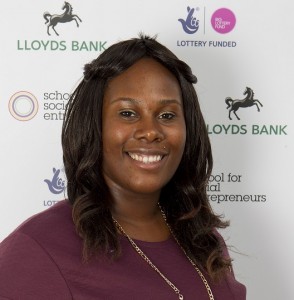 I’ve written before about my love of podcasts, and how they can spark off new ideas or generate new thinking on the way to and from work. My current fave is More Or Less, the Radio 4 programme about statistics, numbers, and how they relate to the news events of the day (often to politics and policy). This covers everything from the real value of the national debt to the comparative effectiveness of different contraceptives. It’s more interesting (and entertaining) than it sounds, and it is particularly useful to have that rational discipline and questioning mindset when, like me, you are giving a lot of thought to an organisation’s measurement and evaluation.
I’ve written before about my love of podcasts, and how they can spark off new ideas or generate new thinking on the way to and from work. My current fave is More Or Less, the Radio 4 programme about statistics, numbers, and how they relate to the news events of the day (often to politics and policy). This covers everything from the real value of the national debt to the comparative effectiveness of different contraceptives. It’s more interesting (and entertaining) than it sounds, and it is particularly useful to have that rational discipline and questioning mindset when, like me, you are giving a lot of thought to an organisation’s measurement and evaluation.
I mention all this because the main man of More Or Less is Tim Harford, also known as the FT’s Undercover Economist (incidentally, the book of that name is a great intro to economic thinking and gives useful insights into pricing, costing, markets and much else besides). He has a book being launched later this year called Adapt: Why Success Always Starts With Failure, and I’m looking forward to it to an almost indecent degree.
Why? Well, if you read my recent piece on how social entrepreneurs learn, or anything about SSE’s approach to learning, you’ll know that we are keen advocates of action learning or learning by doing. That the best learning comes from action, and that the most successful initiatives are not those with the perfect business plan, but those which learn from failures, mistakes and imperfections. That things get figured out on the frontline, not in back offices; that it is not academic ‘experts’ who solve complex problems, but practitioners with experience; that solutions are often better generated from bottom-up action and adaptation than top-down planning and grand strategies.
Indeed, it is that flexibility, agility, and adaptability that is identifiable in the best social entrepreneur-led organisations around, explaining their ability to both continuously improve and innovate their product and service, and also their readiness to seize opportunities and utilise untapped resources. The blurb for Harford’s book resonates strongly with this, saying that ‘out’ go experts, plans and (top-down) leaders, and ‘in’ come adaptation, improvisation, failing and learning (and trying again). And it looks like he will apply that thinking to big problems (Iraq, global warming, terrorism) and ‘small’ ones equally (everyday decisions in life and business).
While ‘nudging’ focuses on influencing (and changing) behaviours, adapting is more fundamentally about encouraging action before planning, overcoming obstacles as they arise, changing approaches rapidly and, most of all, about shifting the culture of risk-aversity to one of risk-awareness and even risk-acceptance. And further accepting that there will be failures along the way. It is an approach that makes most sense in a world in which contexts and circumstances shift rapidly, and in which the pace of society’s development (and life generally) seems to outpace the best-made plans of policymakers and theorists.
So 2010 might have been the year of ‘nudge’, but 2011 should be the year of ‘adapt’ (and the year after that….).
[NB – Some might then advocate for an ‘adapt’ unit at the heart of government, perhaps headed up by Tim Harford himself; but obviously that would be a top-down, strategic plan for adaptation with an expert at the centre…which wouldn’t really work at all :0) ]


